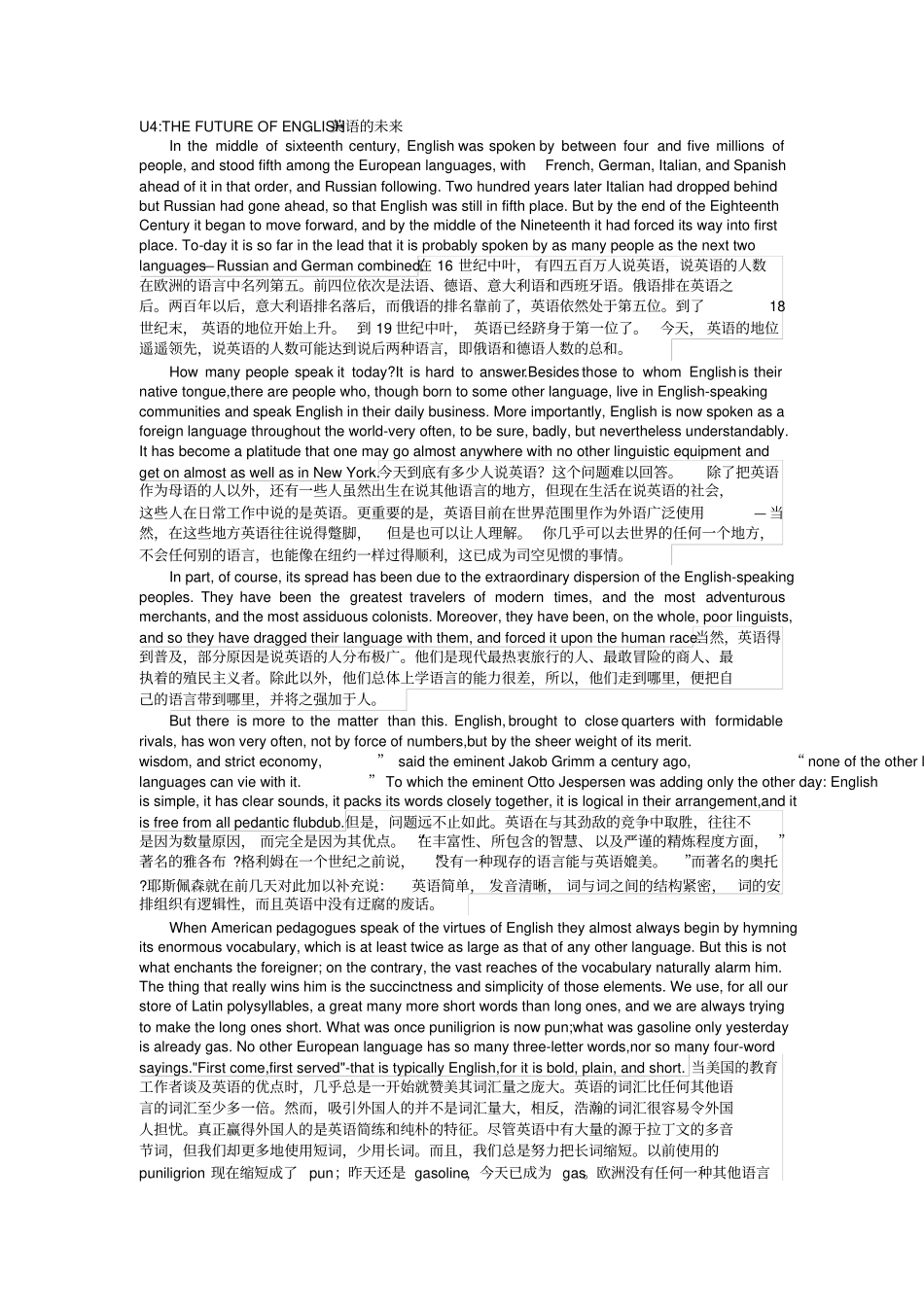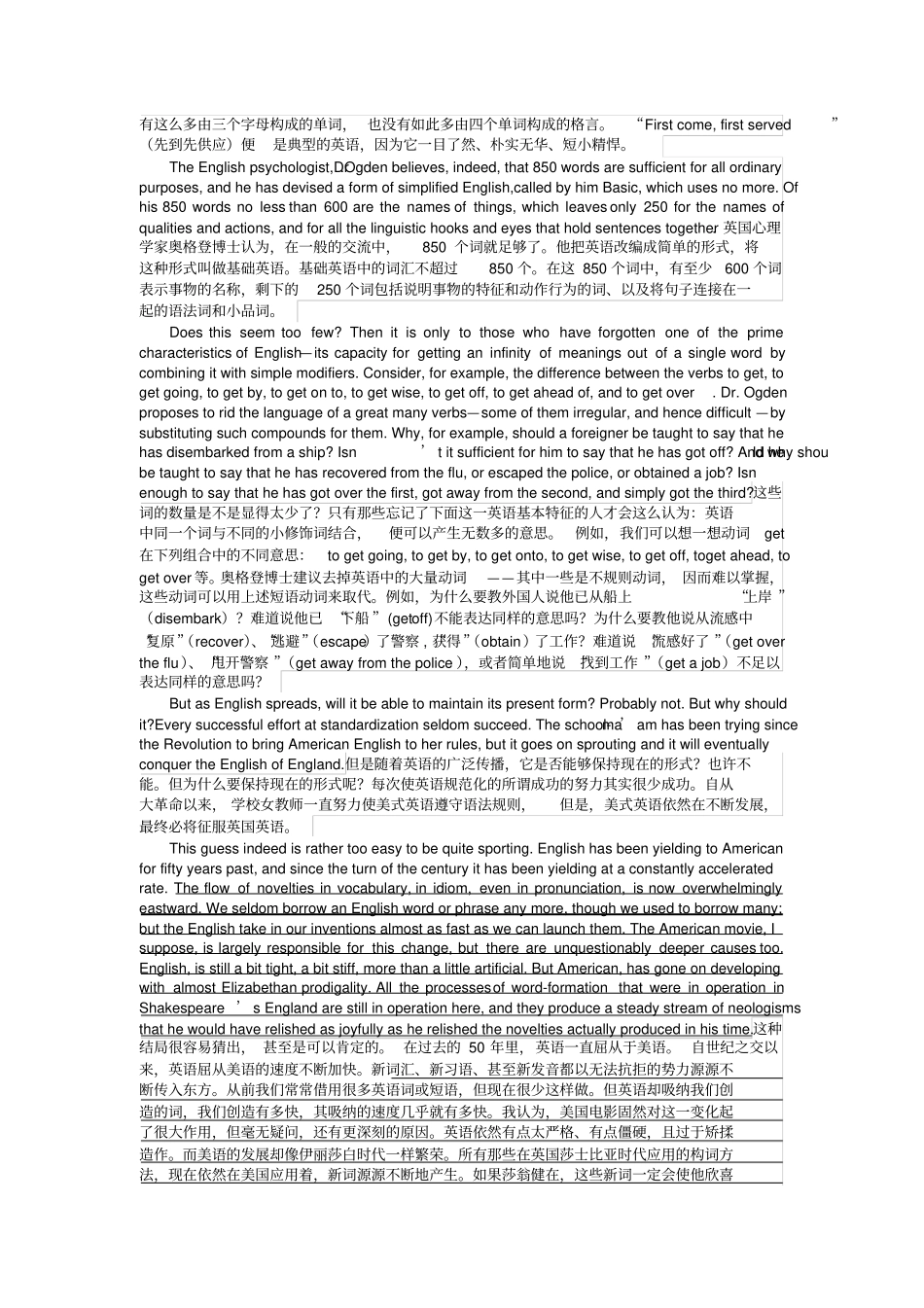U4:THE FUTURE OF ENGLISH 英语的未来In the middle of sixteenth century, English was spoken by between four and five millions of people, and stood fifth among the European languages, with French, German, Italian, and Spanish ahead of it in that order, and Russian following. Two hundred years later Italian had dropped behind but Russian had gone ahead, so that English was still in fifth place. But by the end of the Eighteenth Century it began to move forward, and by the middle of the Nineteenth it had forced its way into first place. To-day it is so far in the lead that it is probably spoken by as many people as the next two languages—Russian and German combined.在 16 世纪中叶, 有四五百万人说英语,说英语的人数在欧洲的语言中名列第五。前四位依次是法语、德语、意大利语和西班牙语。俄语排在英语之后。两百年以后,意大利语排名落后,而俄语的排名靠前了,英语依然处于第五位。到了18世纪末, 英语的地位开始上升。 到 19 世纪中叶, 英语已经跻身于第一位了。今天, 英语的地位遥遥领先,说英语的人数可能达到说后两种语言,即俄语和德语人数的总和。How many people speak it today?It is hard to answer.Besides those to whom English is their native tongue,there are people who, though born to some other language, live in English-speaking communities and speak English in their daily business. More importantly, English is now spoken as a foreign language throughout the world-very often, to be sure, badly, but nevertheless understandably. It has become a platitude that one may go almost anywhere with no other linguistic equipment and get on almost as well as in New York. 今天到底有多少人说英语?这个问题难以回答。除了把英语作为母语的人以外,还有一些人虽然出生在说其他语言的地方,但现在生活在说英语的社会,这些人在日常工作中说的是英语。更重要的是,英语目前在世界范围里作为外语广泛使用— 当然,在这...


